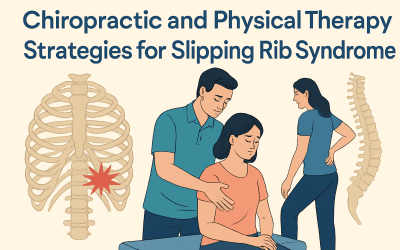Slipping Rib Syndrome (SRS) is typically painful and underdiagnosed. It is when the lower ribs slide further than they normally do. This can compress nerves or irritate muscles. Patients with SRS typically have a sudden pain in the lower chest or upper abdomen,...
Restore, Strengthen, Thrive
Physical Therapy in Redmond, WA
Start the Road to Recovery
Located near Microsoft campus in Redmond, WA
Designed to Restore Movement
At Eastside Ideal Health, our physical therapy services in Redmond are designed to help you move better, heal faster, and regain strength—whether you’re recovering from surgery, managing pain, or improving performance. We deliver one-on-one care grounded in movement science, hands-on techniques, and individualized progress plans.
Redmond-Based Care That Moves With You
Our clinic is conveniently located on 152nd Ave NE, easily accessible from downtown Redmond, Overlake, and the Microsoft campus area. Whether you’re walking in after a recent surgery or looking to restore balance and function, we’ll meet you at your level—and build from there.
What We Treat
- Post-operative rehab (ACL, rotator cuff, joint replacement)
- Back and neck pain, disc conditions, sciatica
- Shoulder, hip, and knee injuries
- Balance and vestibular disorders
- Gait dysfunction and mobility loss
- Repetitive strain injuries (RSIs, tendonitis)
- Pelvic stability and pre/postnatal support
Our Physical Therapy Approach
Thorough Movement Assessments
Every plan begins with a detailed evaluation of your movement patterns, postural alignment, and functional limitations. This helps us create a treatment roadmap that’s truly yours.
Manual Therapy Techniques
We use joint mobilizations, soft tissue release, and neuromuscular re-education to reduce pain, improve range of motion, and accelerate tissue healing.
Therapeutic Exercise Progressions
Our therapists coach you through progressive exercises that target strength, mobility, balance, and motor control. These movements are functional and directly tied to your goals—whether that’s walking confidently, lifting again, or returning to sport.
Advanced Modalities & Movement Tools
When appropriate, we incorporate tools like mobility bands, BFR (blood flow restriction) training, neuromuscular stimulation, and balance platforms to enhance your rehab outcomes.
Education & Prevention
We go beyond sessions to equip you with posture strategies, ergonomic corrections, and home exercise plans. Education is a pillar of our care—because long-term success requires ownership.
Why Choose Eastside Ideal Health for Physical Therapy?
- Expert clinicians: Trained in orthopedic, post-surgical, and neurological rehab
- Collaborative care: Work with a team that includes chiropractors, mobility coaches, and nutrition professionals
- Private one-on-one sessions: No group therapy or rushed tableside work
- Functional, movement-first mindset: We don’t chase symptoms—we correct root dysfunction
- Local & accessible: Serving Redmond, Overlake, Bellevue, and Kirkland
Frequently Asked Questions
- Do I need a doctor’s referral?
- In Washington state, you can access physical therapy without a physician referral. We also work with referring MDs and specialists if needed.
- How many sessions will I need?
- It depends on your goals and condition. We’ll discuss your timeline and expectations after your first evaluation.
- Do you accept insurance?
- We operate as out-of-network providers and accept HSA/FSA payments. We’re happy to provide documentation for insurance reimbursement.
Take the First Step Toward Stronger Movement
Whether you’re recovering from injury, prepping for surgery, or simply trying to move through life with less restriction, we’re here to support your journey. Let’s build strength, stability, and confidence—one step at a time.
Book Your Physical Therapy Evaluation
Related Services:
“
Testimonials
Restore Strength and Mobility
Our physical therapy programs are designed to help you rebuild function, improve flexibility, and move with confidence.
Rehab That’s Focused on You
We tailor every treatment plan to your body, your goals, and your recovery timeline—no cookie-cutter protocols here.
Support for Injury Recovery and Prevention
From post-injury rehab to performance optimization, our physical therapy helps you heal properly and avoid future setbacks.
Learn More About Physical Therapy
Physical Therapy Resources
Contact Us For An Appointment
Get Relief
Clinic Hours
Monday-Friday: 730am - 6pm
Saturday: 9am - 12pm
Sunday: Closed

